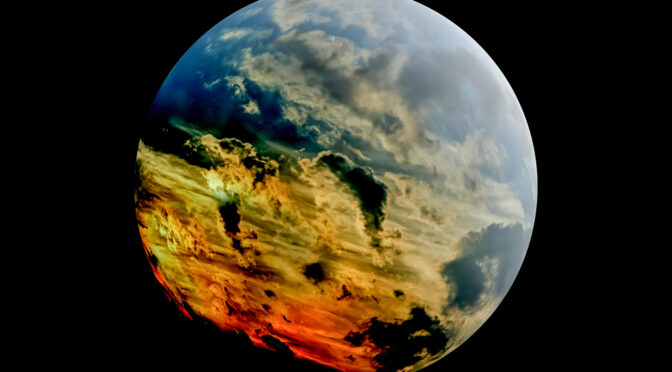A team of astrophysicists discovered a new Earth-like planet on the doorstep of our solar system at our neighboring star, Proxima Centauri. This is about as close as another planet like our own could get, since it is only about four light years away. This planet was named, Proxima B.
While this planet may be Earth-like, there will be some significant differences to our planet since the star is completely different from ours. Proxima Centauri is a red dwarf star, a couple of million years older, and its size is more similar to the size of Jupiter than the sun. Many theories and hypotheses have been made about the star and the Earth-like planet, such as:

The temperatures on Proxima B range where liquid water could occur on its surface. There has been plenty of time for the planet to undergo the chemistry to create life. But just as many other dwarf stars, Proxima Centauri is dim and has sudden and highly aggressive solar flames.
This will produce sudden changes in brightness and extreme high x-ray fluxes. Also, there is the possibility that projected particles will reach the planet which can be deadly for any form of life living there.
Since the star is this old, there is a big chance the planet managed to create a coping mechanism for these flares. Though, this would mean for us that we would end up slightly toasted if we would visit. The Earth-like planet is orbiting very close to its star, about 7.5 million kilometers.
Compared to Mercury, this is much closer since Mercury is located at about 35 million kilometers from our sun. This means that the planet is very likely to always face its star in the same way, comparable to how the moon is facing Earth.
 If this is the case then it could be that the side facing the star will be as dry as Mars and the other half which never receives any light or warmth could be just as frozen as Pluto. A planet that knows on one side eternal day and on the other eternal night. Imagine being close to the division line, you will witness a never-ending sunset.
If this is the case then it could be that the side facing the star will be as dry as Mars and the other half which never receives any light or warmth could be just as frozen as Pluto. A planet that knows on one side eternal day and on the other eternal night. Imagine being close to the division line, you will witness a never-ending sunset.
The potential for life on this planet completely depends on the atmosphere it has if any exists. Even if the atmosphere is very thin, there is already a chance photosynthesis could have taken place which could result in life.
Even though all of this is still based on theories, this is the closest we have ever come to a relatively close planet with a chance of life. Imagine if or when we find some life out there in our infinite universe. What do you think will happen?

